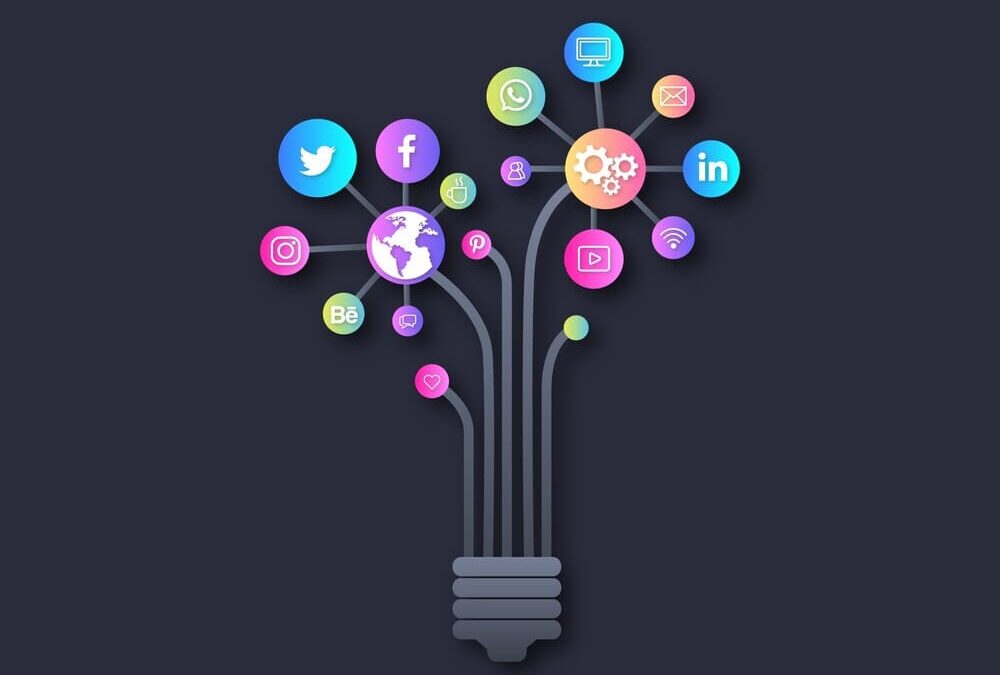In today’s fast-paced and highly competitive digital landscape, businesses must employ effective lead generation strategies to stay ahead of the curve. Lead generation is not just essential for consistent business growth, but it also helps businesses capture potential customers and nurture them into loyal clients. Whether you’re a startup looking to scale or an established enterprise aiming to boost your revenue, these 15 lead generation channels will help you build a reliable pipeline of qualified leads. This article will explore these strategies in depth, explaining why each channel works and how they can help accelerate your lead generation efforts.
1. Content Marketing: Crafting Valuable Content to Attract Leads
Content marketing is one of the most powerful and enduring methods of attracting potential customers. The essence of this strategy is creating valuable, high-quality content that addresses your audience’s pain points, educates them about your services, and establishes your brand as an authority in your industry. Examples include blog posts, eBooks, whitepapers, case studies, and webinars.
By crafting content that directly speaks to your audience’s needs, you not only provide immediate value but also build long-term trust with your leads. Sharing this content through your website, email marketing, or social media platforms can generate inbound leads. When your content resonates, people are more likely to trust you and eventually convert into loyal customers.
Why It Works:
-
Trust and Authority: Consistently valuable content helps establish your business as a thought leader in your field.
-
Organic Traffic: High-quality content can improve your SEO ranking, leading to organic traffic.
-
Nurturing: Content nurtures leads by guiding them through the buyer’s journey.
2. SEO (Search Engine Optimization): Increasing Visibility and Traffic
Search Engine Optimization (SEO) is vital for increasing your website’s visibility and driving organic traffic. When done right, SEO ensures your website ranks higher on search engines, meaning more prospects will find you when searching for solutions related to your business.
SEO involves optimizing your site’s content, meta descriptions, and title tags (on-page SEO) and earning high-quality backlinks (off-page SEO). Effective keyword research and implementation ensure your content aligns with what potential customers are actively searching for, which translates into more relevant traffic and leads.
Why It Works:
-
Long-term Results: SEO is a long-term strategy that continues to drive traffic and leads with minimal ongoing investment.
-
Targeted Traffic: SEO ensures that your website is found by people actively looking for what you offer.
-
Credibility: High-ranking pages build trust, as most users trust organic search results over paid ads.
3. Social Media Marketing: Engaging with Your Audience on Social Platforms
Social media marketing is a dynamic channel that helps you engage directly with potential leads on platforms like Facebook, Instagram, LinkedIn, and Twitter. By posting relevant and valuable content, interacting with your followers, and running targeted ads, you can effectively capture leads. The key to success with social media is consistency and relevance to your target audience.
Social media platforms allow businesses to build relationships in real-time and create personalized interactions with potential customers. Engaging content, whether through posts, stories, or ads, can increase brand visibility and foster trust, ultimately leading to higher conversion rates.
Why It Works:
-
Wider Reach: Social media helps you reach a broad and diverse audience, increasing the chance of generating leads.
-
Personal Engagement: Direct conversations with prospects foster stronger relationships.
-
Influencer Support: Shared content and influencer partnerships can boost your visibility exponentially.
4. Paid Advertising (PPC): Quick Lead Generation with Paid Campaigns
Paid advertising is an efficient way to generate leads quickly, especially when organic channels take time to produce results. Platforms like Google Ads and Facebook Ads allow businesses to target specific demographics, interests, and behaviors to ensure they reach the right audience.
With Pay-per-click (PPC) campaigns, businesses can create highly targeted ads that bring immediate traffic to their site. This strategy works well for time-sensitive offers or when quick lead generation is required.
Why It Works:
-
Instant Results: Paid campaigns bring immediate traffic, offering a quick path to lead generation.
-
Highly Targeted: Ads can be laser-targeted to the right audience, ensuring higher chances of conversion.
-
Measurable ROI: You can track campaign performance in real-time and adjust strategies to optimize results.
5. Email Marketing: Nurturing Leads through Targeted Campaigns
Email marketing remains one of the most powerful tools for nurturing leads. By building an email list through sign-ups and opt-ins, businesses can regularly engage with leads through tailored, personalized content. Whether sending promotional offers, product updates, or educational content, email marketing helps you stay in touch with leads and build relationships over time.
Personalization and automation are key to the success of email marketing. Automated campaigns like welcome emails, follow-ups, or abandoned cart reminders can guide prospects through the sales funnel, significantly boosting conversion rates.
Why It Works:
-
Direct Communication: Email marketing allows for a direct line of communication with prospects.
-
Personalization: By personalizing email content, businesses can speak directly to the lead’s interests.
-
Automation: Automated campaigns keep prospects engaged even while you focus on other tasks.
6. Webinars and Online Events: Building Relationships and Credibility
Webinars and online events offer a unique opportunity to engage with your audience in real-time, showcasing your expertise and fostering a deeper connection. Whether you’re offering valuable insights, conducting product demos, or providing educational content, webinars provide an interactive way to generate high-quality leads.
People who sign up for webinars are already expressing interest in your topic, meaning they are more likely to convert. Hosting live events also gives you the chance to address questions directly, increasing trust and credibility.
Why It Works:
-
Real-time Engagement: Webinars allow for live interaction with leads, building trust and credibility.
-
High-Quality Leads: Attendees are already interested in the topic, making them more likely to convert.
-
Authority Building: Hosting webinars establishes your business as a trusted authority in your field.
7. Referral Marketing: Leveraging Your Existing Customers
Referral marketing is a powerful and cost-effective way to generate high-quality leads. By encouraging your existing customers to refer others to your business, you tap into a pre-existing network of trust. Offering incentives such as discounts, rewards, or bonuses for successful referrals can motivate customers to advocate for your brand.
Referrals tend to have higher conversion rates because they come from trusted sources. This strategy is ideal for creating a consistent stream of high-quality leads.
Why It Works:
-
Trust: Referrals come from people your leads already trust, making them more likely to convert.
-
Cost-Effective: Referral marketing doesn’t require a significant investment, as rewards are only given when leads convert.
-
High-Quality Leads: Referral leads are generally more qualified and convert at a higher rate.
8. Affiliate Marketing: Expanding Your Reach with Partners
Affiliate marketing allows businesses to partner with influencers, bloggers, or marketers who promote your products or services for a commission. This strategy extends your reach by leveraging the affiliate’s audience. It works well in industries like e-commerce or SaaS, where affiliates can help drive targeted leads to your business.
Since you only pay affiliates for actual conversions, affiliate marketing is a performance-based strategy, which makes it a low-risk method of lead generation.
Why It Works:
-
Performance-Based: You only pay for actual conversions, making it cost-effective.
-
Expanded Reach: Affiliates can introduce your business to new audiences.
-
Low Risk: Since payment is tied to performance, the strategy is relatively low-risk.
9. Video Marketing: Capturing Leads Through Visual Content
Video marketing has proven to be one of the most engaging forms of content, allowing businesses to connect with potential leads on a personal level. Platforms like YouTube, TikTok, and Instagram provide opportunities for businesses to create educational, entertaining, and product-focused video content. From product demos to customer testimonials, video allows businesses to explain complex ideas and showcase their value proposition in an engaging manner.
Videos are highly shareable, which increases the potential for viral reach. Additionally, videos help build trust and emotional connections with your audience, making them more likely to convert.
Why It Works:
-
Engagement: Video content captures attention more effectively than text-based content.
-
Trust: Video builds stronger emotional connections with prospects.
-
Viral Potential: Videos are easily shareable, increasing the likelihood of reaching a larger audience.
10. Networking: Building Connections in Your Industry
Networking remains a valuable strategy for lead generation. Whether online or offline, networking allows businesses to connect with potential leads, partners, and collaborators. By attending industry events, joining professional groups, or participating in networking communities, you can position yourself as a trusted industry expert. Networking is especially powerful because it builds relationships that can result in high-quality referrals and business opportunities.
Networking doesn’t just happen at conferences or meetups—it can also occur in online communities like LinkedIn, where you can connect with industry professionals and share valuable insights.
Why It Works:
-
Relationship Building: Networking helps foster long-term relationships that can lead to future opportunities.
-
Trust: Personal connections are often built on trust, making networking leads more likely to convert.
-
Referrals: Networking often leads to word-of-mouth referrals, which are highly valuable.
11. Influencer Marketing: Leveraging Trust and Reach for Lead Generation
Influencer marketing is one of the most dynamic channels for lead generation today. By partnering with individuals who have a strong, trusted following on platforms such as Instagram, YouTube, TikTok, or LinkedIn, businesses can tap into an audience that already trusts the influencer’s opinions.
When influencers promote your product or service, their followers are more likely to see it as a genuine recommendation rather than just an advertisement. This trust factor makes influencer marketing a highly effective way to drive leads. Whether it’s through a product review, a sponsored post, or a live demo, influencers can help you reach a much wider audience and significantly boost brand visibility.
Why It Works:
-
Credibility: Influencers have built strong trust with their audience, making their endorsements more powerful than traditional ads.
-
Targeted Audience: You can select influencers whose followers match your target demographic, ensuring you’re reaching the right people.
-
Increased Reach: Influencers allow you to access large, engaged audiences that you might not reach through other channels.
12. Podcasts: Building an Engaged Audience Through Audio Content
Podcasts have gained significant popularity over the past few years as a powerful medium for businesses to connect with their audience. Creating a business podcast or sponsoring popular podcasts in your industry is an excellent way to generate leads. Podcasts allow you to share valuable insights, interviews, and educational content in a format that can easily be consumed by your audience during commutes or while performing other tasks.
By offering valuable content that appeals to your target audience, you can build a dedicated following and position your business as an authority in your industry. Podcast listeners tend to be very engaged, and they often seek out related products and services, making them prime candidates for lead generation.
Why It Works:
-
Engagement: Podcasts create a deeper connection with your audience through engaging audio content.
-
Authority Building: By sharing expert insights and interviews, you can establish your business as a thought leader in your field.
-
Consistent Reach: Once a podcast is established, it can reach a large audience consistently without additional effort.
13. Surveys and Polls: Engaging Leads While Collecting Valuable Data
Surveys and polls are often used for feedback collection, but they can also be an excellent lead generation tool. By incentivizing participation—whether through discounts, rewards, or exclusive content—you encourage people to share their contact information with you in exchange for valuable insights.
These tools not only help you understand your audience better but also gather critical data to refine your marketing strategies. By asking the right questions, you can segment your leads and personalize your outreach, improving the quality of your lead generation efforts. Surveys can be used to understand customer preferences, collect opinions, or simply gauge interest in a new product.
Why It Works:
-
Data-Driven Decisions: Surveys provide valuable insights into what your audience wants and needs.
-
Lead Nurturing: Incentives for participation encourage users to share their information, which can be used to nurture them through the sales funnel.
-
Segmentation: With survey results, you can segment your leads based on responses and tailor your marketing efforts accordingly.
14. Quizzes: Engaging and Converting Leads with Interactive Content
Quizzes are a fun and engaging way to capture leads while providing value to your audience. By offering personalized results based on quiz answers, you can make your leads feel more connected to your business. Quizzes work particularly well for lead generation when they are tied to specific services, products, or customer pain points.
For instance, a skincare company could offer a quiz on “What’s Your Skin Type?” to recommend products, or a digital marketing firm might offer a quiz on “Which Marketing Strategy Works Best for You?” The quiz results can then be used to send targeted follow-up emails or offers, increasing the chances of conversion.
Why It Works:
-
Engaging Content: Quizzes are interactive, fun, and give users an incentive to participate, leading to higher engagement.
-
Personalized Recommendations: The results provide personalized insights, making the lead feel that your business understands their needs.
-
High Conversion Rates: People are more likely to convert if they’ve participated in a quiz that shows them personalized recommendations.
15. Direct Mail: Adding a Personal Touch to Your Lead Generation Efforts
While digital channels dominate lead generation, direct mail still remains an effective channel for specific industries or customer segments. Direct mail allows you to send personalized, physical offers to potential leads. This could include postcards, brochures, catalogs, or promotional materials that are sent directly to your leads’ mailboxes.
Direct mail is highly effective in industries like real estate, high-end retail, and local services, where physical presence and personalization are crucial. The key to success in direct mail is personalization and relevance. By ensuring your mail offers value and speaks directly to the recipient’s needs, you can create a positive response and generate leads.
Why It Works:
-
Tangibility: Physical mail often stands out from the clutter of digital marketing, making it more likely to be noticed.
-
Personalization: Direct mail can be personalized, which makes the recipient feel valued and more likely to respond.
-
Multi-Channel Approach: When combined with digital channels, direct mail can create a comprehensive lead generation strategy.
Conclusion: Expanding Your Lead Generation Strategy
As we’ve discussed, there are numerous lead generation channels available to businesses today. From content marketing and SEO to affiliate marketing and influencer partnerships, each channel provides a unique approach to attracting and converting leads.
Integrating these 15 channels into a well-rounded lead generation strategy is key to ensuring your business captures the attention of your target audience and nurtures them into loyal customers. As you experiment with different channels, remember that consistency and value are the keys to long-term success in lead generation. Whether you’re using quizzes to engage or email campaigns to nurture, your efforts will pay off by building lasting relationships and driving growth.













